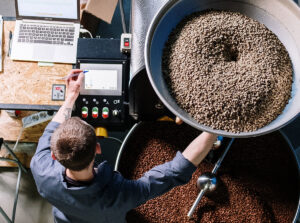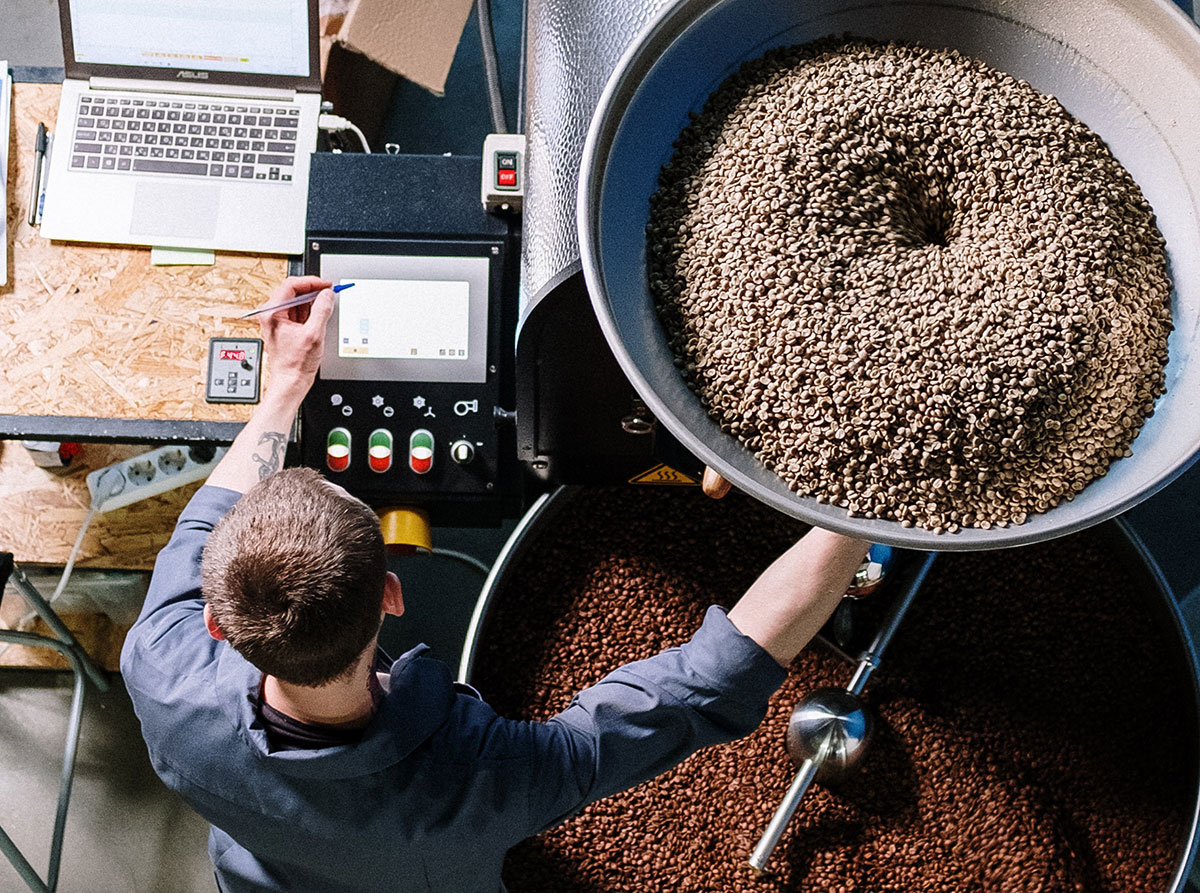Disclaimer: The information on our website is provided for general information purposes only. We make no representations or warranties of any kind, express or implied, about the completeness, accuracy, reliability, suitability or availability with respect to the website or the information contained on our website for any purpose. Any reliance on such information is therefore strictly at your own risk and we are not liable for any damages or losses arising out of or resulting from your reliance on any information contained on our website.
A coffee roaster (or roast master) purchases and uses raw green seeds of berries that grow on coffee plants. They also oversee the roasting process to ensure the roasted beans taste good when brewed. If you love coffee and have a passion to learn the nuances of making a great brew, watch the following video.
How to Become a Roast Master

You don’t need a formal education to become a coffee roaster, but getting hands-on experience is essential. Many people begin gaining experience in cafes and may start out as a barista. Thus, they learn the difference in coffee flavors and mentor under other roast masters. Additionally, they can learn the digital tools used to record temperature and air velocity in roasting chambers.
An experienced roast master can teach you about sensory skills necessary for roasting like smelling, watching, and listening. Additionally, they can teach you about roasting lighter and darker beans to enhance the flavor of the coffee. This is because roasting is about controlling taste. In fact, you can also gain additional exposure at coffee festivals and trade shows. Here, you can sample test equipment from different manufactures and vendors.
Experimenting with the purchase of a roaster and a grinder is a great way to begin learning about the process of coffee roasting. You can even learn to taste the difference in the beans by attending cupping classes and keeping a journal of the roasts you enjoy. Trade associations also offer certificate programs. For example, the Coffee Roasters Guild (CRG) have two certification levels. Courses include basic roasting profiles, green coffee grading, and packaging. The Specialty Coffee Association of America offers workshops, seminars, and other training. You learn about the importance of select waters and can become a private or business member.
Coffee Roaster Job Description
A roast master is involved in selecting the best beans from importers and will know the beans’ origins and the locale of the farm where they are grown. They may form relationships with the farmer and broker the sale and delivery of the product. They also control the roasting process to ensure they get the required light or dark roast they are looking for. The roaster must oversee the temperature of the roast as heat causes beans to get dryer and lighter in weight. They observe the bean cracking and getting darker in the color. How they roast the bean changes the flavor when the natural sugars in the product begin to caramelize. It is common to use programmable roasting machines to achieve consistent results of the coffee roast.
A coffee roaster will also load beans into a hopper above a roasting drum. They release the coffee beans down a chute into a drum where the product circulates as they roast. More significant operations can load up to 11,000 pounds per hour of raw beans in a conveyor system that packages the beans with an automated production line. Smaller businesses usually use capacities of 25-50 pounds for the production of the coffee. They may even unload and package the coffee themselves without automation.
Coffee roasters stays on top of production timelines and ensures the beans’ roast quality. They create and develop coffee blends by smelling and taste testing their product to enhance the coffee’s flavor.
Self-employed roast masters have other duties besides overseeing and packaging the coffee beans such as networking, marketing, purchasing and repairing equipment, calculating expenses, paying bills, and filling orders.
A coffee roaster has good listening and communication skills. They also need a good sense of smell, taste, and vision to succeed in this occupation. They also have stamina as they stand for long hours and good motor skills to operate machinery and can lift several pounds of coffee beans. Researching food laws is necessary as every State is different and has food label laws.
Benefits of being a Coffee Roaster
Coffee roasters relish the profound satisfaction that stems from their craft, as they take green coffee beans and transform them into a top-quality, flavorful product through their roasting expertise. Beyond their daily work, many coffee roasters also have the opportunity to give back to their communities by offering tours and training classes, allowing them to share their passion with friends, family, and fellow coffee enthusiasts. The role also allows for a generous dose of creativity, enabling roasters to experiment with different roasting profiles and flavor combinations, contributing to the ever-evolving world of coffee. This multifaceted profession not only offers the joy of producing exceptional coffee but also the chance to educate and inspire others while fostering a sense of community.
We hope you enjoyed this article! We wish you luck on your career journey!

